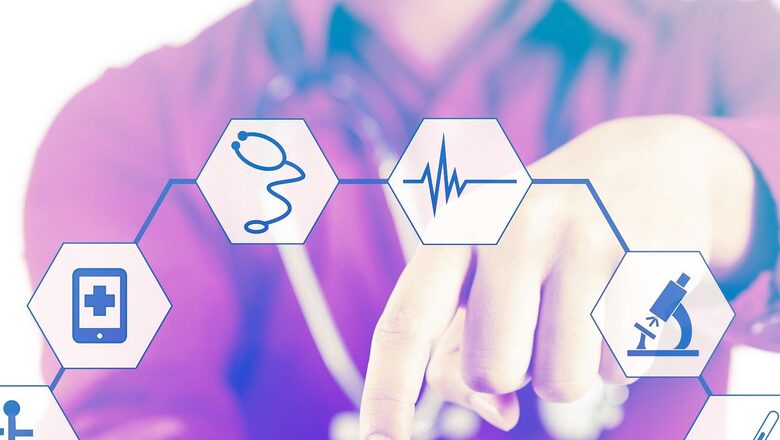
views
Sometimes, adversity propels us into accelerated and innovative action. For several years now, whenever there was any discussion on Indian healthcare and what it needs to improve access and quality, there would be a mention of how technology and digital health could be the levers to help India leapfrog. We saw many innovations and start-ups focusing on health-tech to provide better, faster, wider reach and timely health over the years, however, these were always just that, experiments and breakthroughs but it never really became a mainstream mechanism to deliver healthcare.
While there was some use of data and analytics by medical devices and pharma companies, clinicians as well as patients hesitated in adopting large scale use of technology for remote consultation and treatment. The onset of the pandemic and the dire situation created by the lock down and risk of infection changed all that. Within a few months, tele-consulting became acceptable, initially in emergencies and later as a preferred mode of OPD consulting. Data indicates that tele-consulting increased four times during the first wave. A Deloitte survey indicates that 60 percent of the people believed the use of telemedicine would only increase post COVID. This need based acceleration also led to hospitals and doctors setting up platforms for integrated offerings which went beyond just consultation to including appointments for diagnostics, delivery of medicines etc.
This period also witnessed a surge in use of e-pharmacies and ordering medicines online has become the norm for many people.
The most critical use of digital health for delivering healthcare in the post COVID time will accrue to those who did not have access to doctors and experts. We know that not only is there a huge shortage of doctors and specialists in India, 70 percent of them cater to only 30 percent of those who live in urban areas, further exacerbating the shortage of care in rural areas. Digital health has the potential to help us improve access without waiting for increase in number of doctors.
The second and more important factor that will truly lead to exponential benefits is the capturing and analytics on the data all this digital activity provides us. If we can capture and leverage all the data available with pharmacies, diagnostic chains, doctors and hospitals as well as insurance companies, the cost, speed and outcomes of healthcare can be improved significantly.
Another important use of data that we have already started seeing a trend towards is to further increase awareness and wellness. As people continue to increasingly take the responsibility for their health in their own hands and are equipped with information and the ability to monitor and track their own health through apps, wearables and DIY diagnostic tools, overall health outcomes will improve. Several new apps also allow the patients of chronic diseases like diabetes or hypertension to ensure better compliance with their care and medication routine.
The launch of the National Digital Health Mission (NDHM) and the Ayushman Bharat are two very significant programmes that can be leveraged to ensure this shift. The government has taken the initiative to define rules and governance frameworks that will encourage widespread adoption of digital health initiatives. Launching of Arogya Setu, eSanjeevani and telemedicine programmes have all helped this adoption.
It is expected that the NDHM will effectively use Health ID, DigiDoctor (where doctors can register to connect to the system ), Health Facility Registry (all public and private health facilities can be registered), EMR ( electronic health records maintained at a facility which can be accessed by another location) and PHR – personal health records.
It will allow storing and exchange of data across public and private facilities, create a repository of doctors and healthcare providers and also provide access to individuals on their complete health data. This integrated system is also expected to improve surveillance and response to outbreaks of diseases as well as improve claims processing for Ayushman and private insurance.
While a beginning has been made and the timing is right, there are many challenges that will need to be resolved. These include ensuring data privacy, significant capacity building and digital literacy, data migration and interoperability, regulatory agility, and behavioural shift including of the healthcare providers.
Finally and most importantly, to achieve this vision, it is imperative that we see widespread collaboration between all links in the healthcare chain, the pharma companies, medical device companies, healthcare providers, the start-up eco system, medical and paramedical education planners and research institutes and most importantly between the government and the private sector.
Read all the Latest News, Breaking News and Coronavirus News here.




















Comments
0 comment